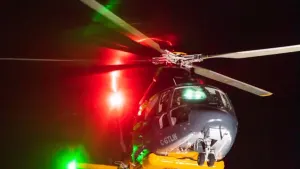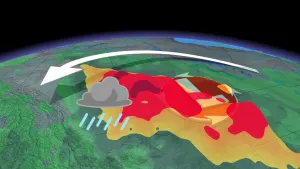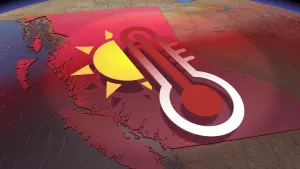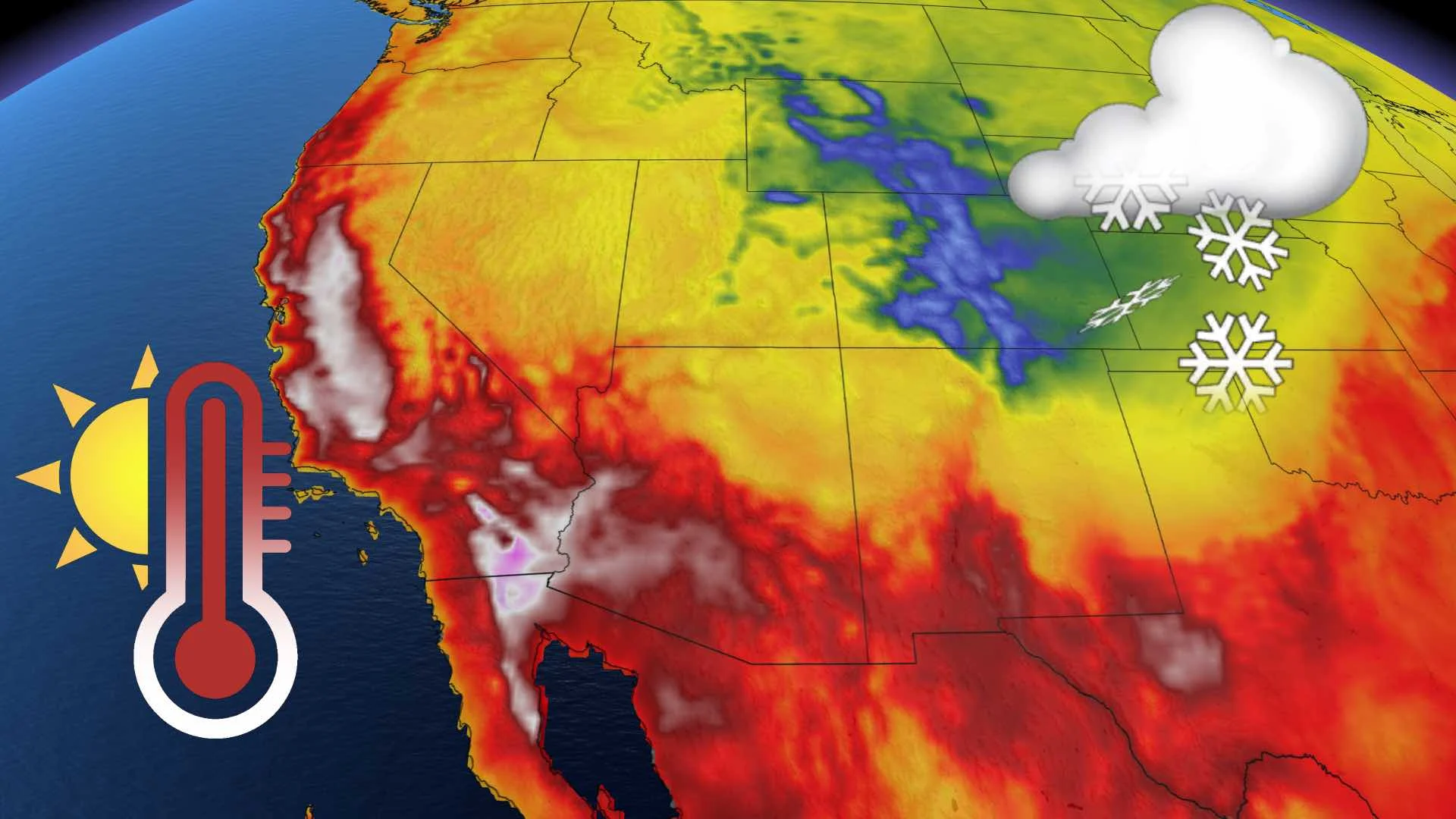
Tale of two seasons: Southwestern U.S. blasted by extreme heat, cold and snow
Temperatures may drop by more than 30 degrees Celsius in parts of Colorado, including Denver.
A massive dome of high pressure is trapping in heat, fuelling dry conditions and bringing extreme temperature drops and snowfall to parts of the southwestern U.S. this weekend.
While the lack of rain is a problem, it’s the heat and cold that will be much more of an issue in this part of the United States. In fact, the temperatures will make for an “unusually long weekend” across several states, says Weather Network meteorologist Jessie Uppal.
Numerous cities such as Los Angeles and San Francisco, Calif., Las Vegas, Nev., Phoenix, Ariz., and Denver, Colo., are expected to smash temperature records, dating far back as the 1940s and 1950s.
The extreme heat in parts of California, Arizona and Nevada will peak over the course of the weekend. Some of the aforementioned major cities are forecast to hit 43-48°C.
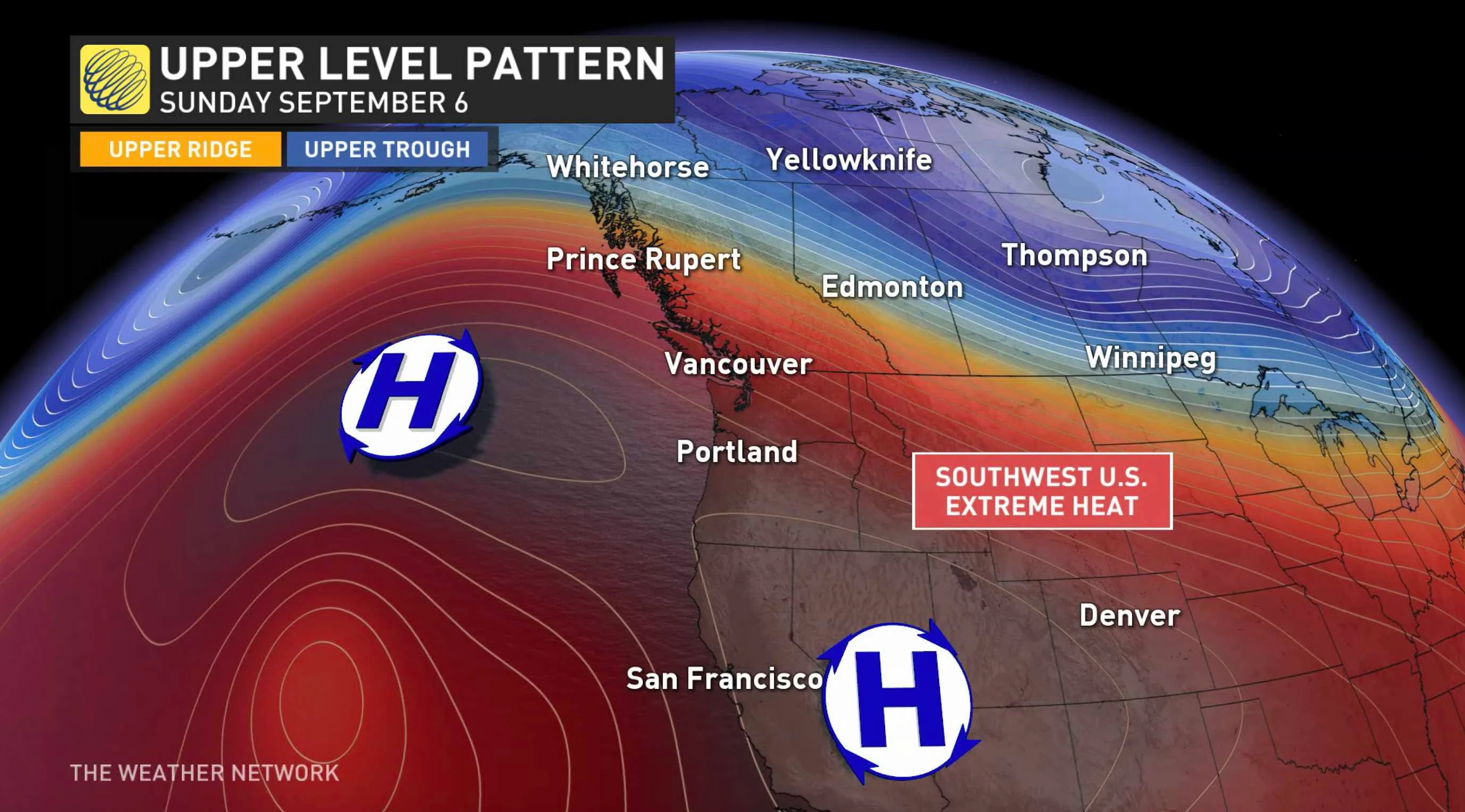
SNOW, COLD TEMPERATURES IN COLORADO
The most pronounced temperature swing will occur Monday night, into Tuesday morning, in parts of Colorado, where temperatures will plummet quickly as a deep upper-trough pools in cold air from the north. Parts of the state, including Colorado, may see temperatures drop by more than 30°C.
The same Arctic air will also bring a sudden drop in temperatures to the Prairies this weekend, with snow expected in parts of Alberta.
"When you see a ridge to this extent, there's usually a lot of cooler air being forced to sink south, just east of that ridge as it sets up. That's exactly where you will expect to see some of that accumulating snow," said Uppal.

"It extends right along the Canadian Rockies, the southern foothills and eventually down towards part of the southwest (U.S.), Colorado included."
Long-standing records will likely be challenged for the earliest snowfall on record in parts of Colorado. Although it wouldn't be the earliest snow ever in Denver - it could tie with Sept. 8, 1962 as the second earliest.
As well, it could be the biggest first snowfall of the season ever recorded in terms of accumulation.
Following the wave of intense heat in the southwest, a sharp pressure gradient will set up, bringing very gusty winds to the region. This is likely to ignite wildfires once again in the week ahead.








